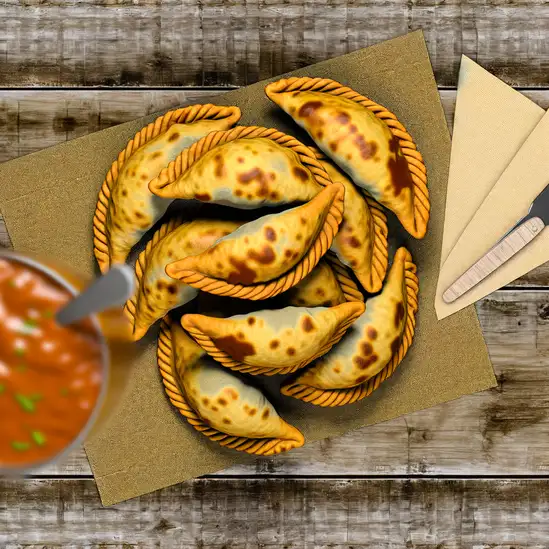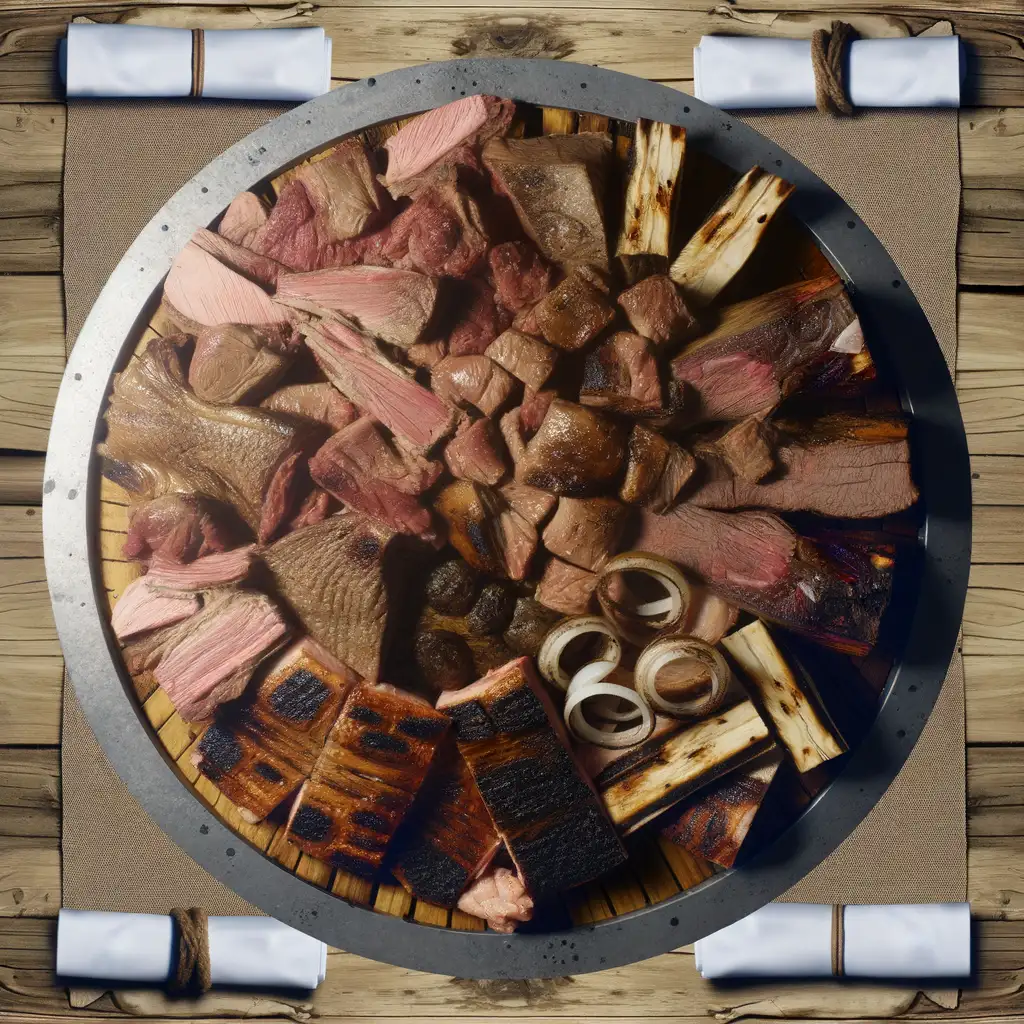



If you ever find yourself dreaming of a place where raw nature meets cozy,small-town charm,El Calafate is that spot. Nestled on the edge of the vast Patagonian steppe,this town has a quiet energy that feels both adventurous and welcoming. The air carries a crispness that wakes you up with every breath,tinged with the faint scent of pine and earth. When you stroll through its streets,you’ll hear the soft murmur of travelers swapping stories over steaming cups of mate or rich Argentine coffee,while the distant wind whispers tales from the nearby glaciers. What really makes El Calafate unforgettable is its connection to the natural world. The town feels like a gateway to something immense and ancient—especially when you catch your first glimpse of the Perito Moreno Glacier. Imagine standing before a colossal wall of ice,its brilliant blues shimmering under the sun,cracking and groaning as chunks calve into the turquoise waters below. It’s humbling and exhilarating all at once. Back in town,the local culture is warm and unpretentious,with friendly faces eager to share their love for the land,the sheep farming heritage,and the hearty Patagonian lamb dishes that taste like a celebration of the region itself. Evenings in El Calafate have their own magic. The sky stretches wide and clear,perfect for stargazing,while the cozy restaurants invite you to linger over Malbec and homemade desserts. It’s a place that invites you to slow down,breathe deeply,and soak in the wild beauty that feels both timeless and alive. Trust me,once you’ve been here,you’ll carry a piece of Patagonia’s spirit with you long after you leave.
The information on this page is currently being reviewed by Tripkliq and should be used as a guide only
Eng word: Hello
Eng pronunciation: OH-lah
Local language: Hola
Eng word: Goodbye
Eng pronunciation: ah-DYOS
Local language: Adiós
Eng word: Thank you
Eng pronunciation: GRAH-syahs
Local language: Gracias
Eng word: How much
Eng pronunciation: KWAN-toh KWEH-stah
Local language: ¿Cuánto cuesta?
Eng word: Toilet
Eng pronunciation: BAH-nyoh
Local language: Baño
Eng word: Help me
Eng pronunciation: ah-YOO-dah-meh
Local language: Ayúdame
Eng word: Yes
Eng pronunciation: SEE
Local language: Sí
Eng word: No
Eng pronunciation: NO
Local language: No
Eng word: Excuse me
Eng pronunciation: pehr-DOHN
Local language: Perdón
El Calafate was officially founded on December 7,1927, serving as a hub for wool trading and as a base for visiting Perito Moreno Glacier.
El Calafate is named after the calafate bush native to southern Patagonia. Legend has it that those who eat its berry will return to Patagonia.
Perhaps the most famous tourist attraction in El Calafate, the Perito Moreno Glacier is one of the few advancing glaciers in the world, drawing visitors globally.
In 1937, Los Glaciares National Park was created to preserve the vast icy landscapes and diverse ecosystems surrounding El Calafate.
The late 20th century saw a significant increase in tourism, transforming El Calafate from a small village into a major gateway to Patagonian adventures.
Opened in 2000, the airport has significantly facilitated access for international and national visitors, bolstering El Calafate's tourism industry.
Laguna Nimez, located close to the town, is a natural reserve that showcases the rich biodiversity of birds and plants typical of the Patagonian steppe.
The Glaciarium is a modern museum dedicated to the study of ice and glaciers, offering insights into the importance of these ice formations in the global ecosystem.
El Calafate celebrates the annual Ice Festival, featuring ice sculpture competitions, live music, and cultural events, reflecting the town's connection to glaciers.
In El Calafate, the most common Power Adaptor is Type C, Type I.



Savory pastries filled with a variety of ingredients, such as meat, cheese, or vegetables, and baked or fried.

A traditional Argentine barbecue featuring various cuts of beef, pork, and sometimes lamb, cooked on a grill or open fire.

A popular street food consisting of a chorizo sausage served in a crusty bread roll, often topped with chimichurri sauce.

A sweet caramel-like spread made from condensed milk, often used in desserts or enjoyed on its own.
.webp)
Freshly caught trout from the nearby lakes, typically grilled or baked, and served with local herbs and vegetables.

Imagine stepping into a place where the wildness of nature meets the warmth of a close-knit community—that’s Ushuaia for you. Nestled at the very tip of South America,this city feels like the edge of the world,with snow-capped mountains standing guard over the deep blue waters of the Beagle Channel. The air is crisp and fresh,carrying hints of pine and salty sea spray,and when you walk along the harbor,you can almost hear the distant call of sea lions mingling with the chatter of locals and travelers alike.
Ushuaia’s charm isn’t just in its dramatic landscapes but in its spirit. The streets hum with a quiet energy—cozy cafés filled with the rich aroma of freshly brewed coffee,small artisan shops showcasing handmade woolen goods,and restaurants where you can savor Patagonian lamb or freshly caught king crab,each bite bursting with the rugged flavors of the region. There’s a ruggedness here,sure,but also a surprising softness in the smiles of the people who’ve carved out a life in this remote corner.
What really stays with you is the sense of adventure that pulses through the city. Whether you’re gearing up for a trek through Tierra del Fuego National Park,hopping on a boat to spot penguins,or simply watching the sunset paint the sky in fiery hues,Ushuaia invites you to slow down and soak it all in. It’s a place that feels alive,raw,and deeply welcoming—like a story you’re eager to be part of.
If you ever find yourself craving a place where the wildness of nature meets the warmth of a small coastal town,Puerto Madryn in Argentina should be on your radar. The moment you arrive,there’s this fresh,salty breeze that carries the promise of adventure and calm all at once. The town itself feels laid-back but alive,with colorful buildings lining the waterfront and locals who greet you with genuine smiles and a relaxed pace that invites you to slow down and soak it all in.
Walking along the shore,you’ll hear the distant calls of sea lions and the rhythmic crashing of waves against the rugged cliffs. The air smells faintly of the ocean mixed with the earthy scent of Patagonian scrubland nearby. It’s a sensory blend that feels both invigorating and grounding. Don’t miss the chance to taste the local seafood—fresh,tender,and often paired with a glass of crisp Argentine white wine that perfectly complements the coastal flavors.
What really makes Puerto Madryn stand out is its connection to the natural world. It’s the gateway to the Valdés Peninsula,where you can witness southern right whales breaching just offshore or watch penguins waddle along the beach. The town’s character is shaped by this deep respect for the environment,and you can feel it in the way people talk about their home—with pride and a touch of awe. Visiting here isn’t just about seeing a place; it’s about feeling a rare harmony between land,sea,and community.
If you ever find yourself craving a place where nature’s grandeur meets cozy,small-town charm,San Carlos de Bariloche is where you want to be. Imagine waking up to the crisp,pine-scented air,with the shimmering waters of Lake Nahuel Huapi stretching out before you,framed by snow-capped Andes peaks. The vibe here is relaxed but alive—locals and travelers alike gather in rustic cafés,their laughter mingling with the clinking of coffee cups and the rich aroma of freshly brewed Argentine espresso.
Walking through Bariloche’s streets feels like stepping into a storybook. Wooden chalets with colorful shutters line the avenues,and the scent of chocolate wafts from every corner,a nod to the city’s famous artisanal chocolatiers. You’ll hear the soft crunch of snow underfoot in winter or the gentle rustle of leaves in summer,while the distant call of birds adds a natural soundtrack to your explorations. The city pulses with a blend of European alpine influences and Patagonian spirit,creating a unique cultural tapestry that’s both warm and inviting.
What really makes Bariloche unforgettable is how it invites you to slow down and savor the moment. Whether you’re hiking through ancient forests,savoring a plate of fresh trout by the lake,or simply watching the sunset paint the mountains in shades of pink and gold,there’s a deep sense of peace here. It’s a place that stays with you long after you leave,whispering stories of wild beauty and heartfelt hospitality.
Buenos Aires feels like a city that’s alive in every sense — vibrant,passionate,and endlessly inviting. From the moment you step onto its bustling streets,you’re wrapped in a mix of old-world charm and modern energy. The air carries the scent of freshly baked medialunas mingling with the faint,smoky aroma of asado grilling nearby. You’ll hear the rhythmic clatter of tango dancers’ heels on cobblestones,blending with the lively chatter spilling out of cafés and the distant hum of street musicians playing soulful melodies.
Walking through neighborhoods like San Telmo or Palermo,you’ll notice the colorful murals that tell stories of the city’s rich history and rebellious spirit. The architecture is a fascinating patchwork — elegant French-style buildings stand shoulder to shoulder with vibrant street art and quirky boutiques. There’s a warmth in the way porteños (locals) greet each other,a genuine friendliness that makes you feel like you’re part of the city’s ongoing story.
And then there’s the food — oh,the food! Juicy,perfectly grilled steaks paired with Malbec that tastes like it was made just for you. Empanadas bursting with flavor,and dulce de leche desserts that melt in your mouth. Buenos Aires isn’t just a place to visit; it’s a place to savor,to dance,to lose yourself in the rhythm of life. Trust me,once you’ve wandered its streets and soaked in its spirit,you’ll carry a piece of Buenos Aires with you long after you leave.
If you ever find yourself dreaming of a place where the wind carries stories from the ends of the earth,Punta Arenas is that spot. Nestled on the southern tip of Chile,this city has a rugged charm that immediately wraps around you like a cozy,weathered blanket. The air is crisp and salty,tinged with the scent of the nearby Strait of Magellan,and the sky often puts on a dramatic show—clouds swirling in wild patterns,painting the horizon with shades of steel and gold. Walking through its streets,you’ll hear the lively chatter of locals mixed with the occasional bark of sea lions from the harbor,creating a soundtrack that feels both lively and intimate.
Punta Arenas carries a unique blend of history and warmth. Its colorful houses,with peeling paint and flower boxes,stand as quiet witnesses to the city’s past as a gateway for explorers and adventurers. The people here have a straightforward kindness,the kind that invites you to linger over a cup of rich,dark coffee or a plate of fresh king crab caught just that morning. The city’s museums and monuments tell tales of polar expeditions and indigenous cultures,but it’s the everyday moments—like watching the sunset over the water with a local mate in hand—that truly capture its spirit.
What makes Punta Arenas unforgettable is how it balances wild nature with human resilience. You can feel the pulse of the wind,the chill of the Patagonian air,and the warmth of a community proud of its roots. It’s a place that invites you to slow down,breathe deeply,and soak in the raw beauty of the world’s edge.
A charming city that serves as the main base for exploring Torres del Paine National Park,one of the most iconic destinations in Patagonia.
ExploreTourists may receive counterfeit bills as change, especially in smaller denominations. This is more common in cash transactions at markets or with street vendors.
In some cases, credit card skimming devices are used at ATMs or in less reputable establishments, leading to unauthorized charges on tourists' cards.
Scammers create fake listings for hotels or vacation rentals online, requiring tourists to pay a deposit in advance. Upon arrival, the accommodation either doesn't exist or is already occupied.
Scammers may approach tourists claiming to have an emergency (e.g., needing money for a bus ticket or medical issue) and ask for financial help, which is never repaid.
Some scammers pose as legitimate tour operators and sell fake tickets or tours to popular attractions like the Perito Moreno Glacier. Tourists may pay upfront only to find out the tour doesn't exist.
Some shops in tourist-heavy areas inflate prices for souvenirs, banking on tourists not knowing the fair market value of items.
Unscrupulous taxi drivers may overcharge tourists by taking unnecessarily long routes or not using the meter, especially for airport transfers or trips to tourist hotspots.
Individuals may pose as tour guides and offer subpar or incomplete tours, charging tourists high fees for a poor experience.
Argentina has strict laws regarding the possession, use, and trafficking of drugs. Possession of small amounts of marijuana for personal use has been decriminalized, but it is still illegal and can result in fines or mandatory treatment. Other drugs are strictly prohibited, and penalties for possession, use, or trafficking can be severe, including imprisonment. Tourists should avoid any involvement with illegal drugs to avoid legal trouble.
In El Calafate, as in the rest of Argentina, smoking is regulated by national laws. Smoking is prohibited in enclosed public spaces, including restaurants, bars, and public transportation. There are designated smoking areas in some places, but it's always best to ask if you're unsure. Smoking is also banned in certain outdoor areas, such as near schools and hospitals.
Vaping is subject to similar regulations as smoking in Argentina. It is prohibited in enclosed public spaces and public transportation. While the enforcement may vary, it's advisable to follow the same rules as smoking to avoid any issues.
What are other people saying about El Calafate?
Recent Social posts about El Calafate
There is nothing to show you for now.